Local Resistance
This section looks at the way local people resisted attempts by the Nutrition Development Unit – which included Jessie Barker – to intervene in the way food was produced and consumed within the communities of Nyasaland.
Jessie Barker’s Diary – 7 November 1940
Jessie Barker’s Diary – 2-3 January 1941
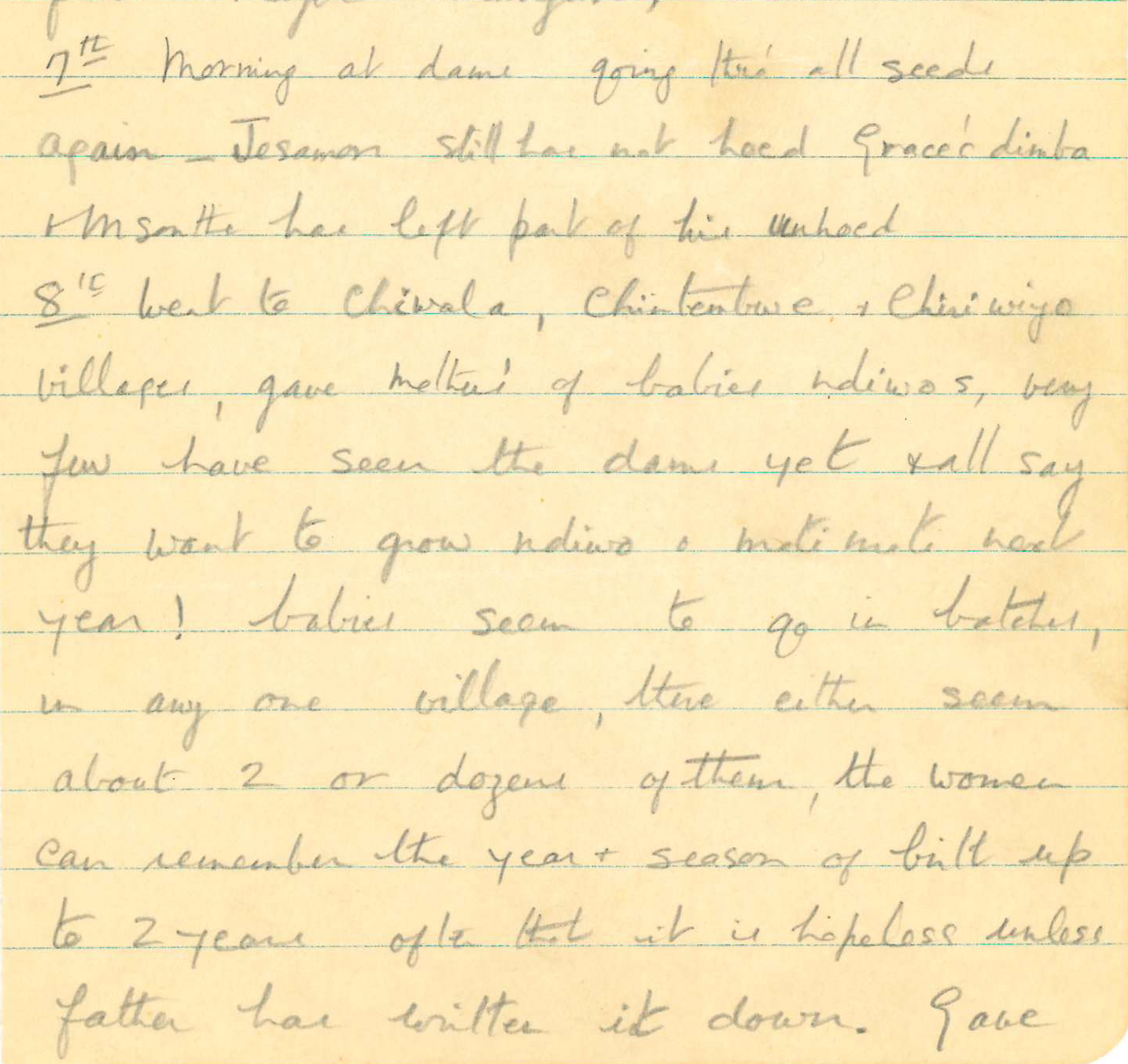
Barker notes that both ‘Jesamon’ and ‘Msonthe’ – presumably local men – have not been maintaining the dimbas (gardens). This can be interpreted as a reluctance on the part of the local people to cooperate with Barker’s interventions.
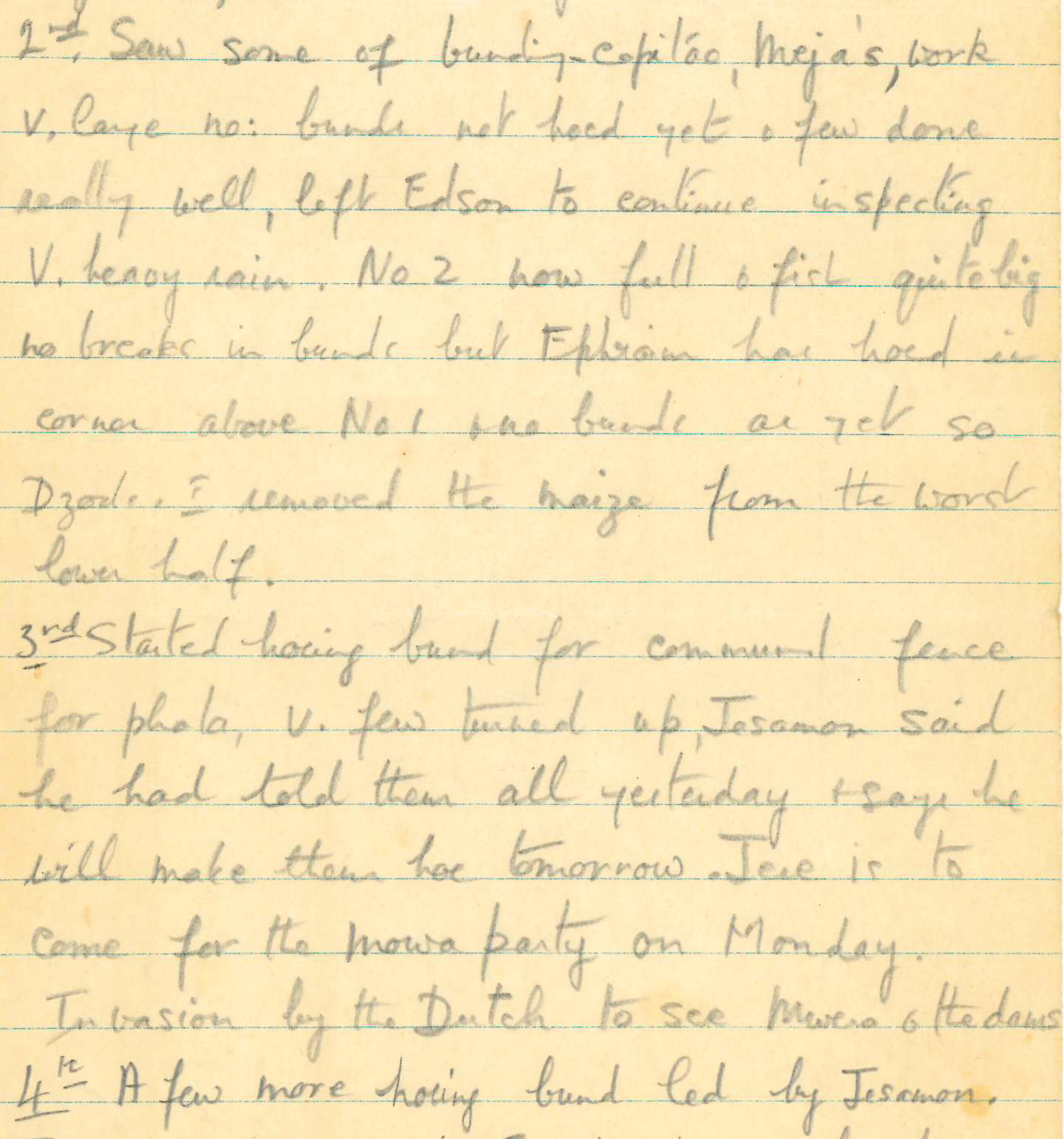
Barker’s enthusiasm for the development of vegetable gardens does not appear to be matched by the local people, who often seem reluctant to participate in the project. The endless inspections of the ‘bunds’ (sloping terraces) and ‘dimbas’ (gardens) by Barker feels uncomfortable, as if the people involved are being policed and, as is often the case, reprimanded for their lack of interest.
Here Barker again acknowledges the lack of local interest in her project and the perceived need to ‘make them’ do the work – in this case hoeing the ‘bunds’.
Jessie Barker’s Diary – 16 September 1941
Jessie Barker’s Diary – 18 September 1941
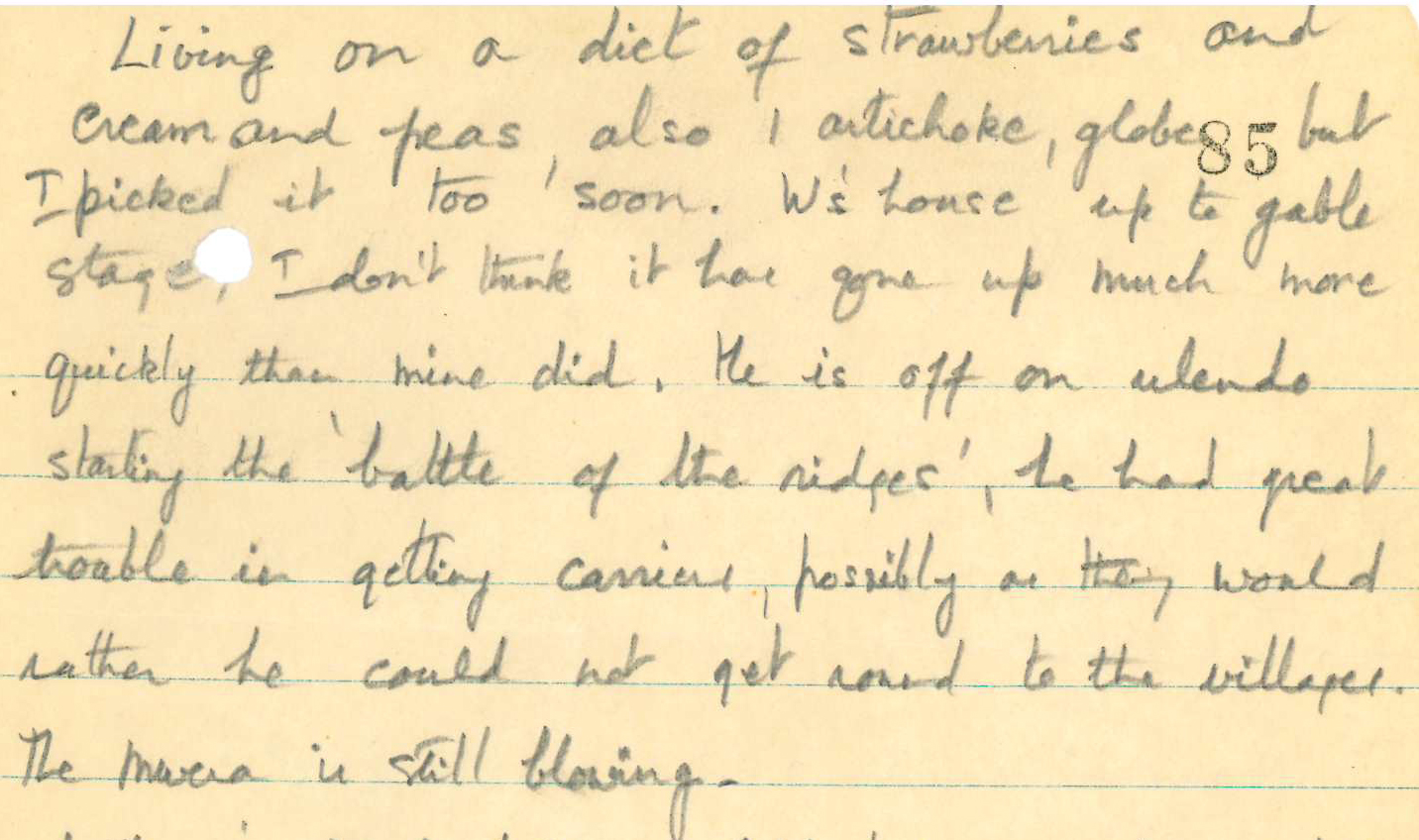
It is difficult to determine exactly what ‘the battle of the ridges’ alludes to. However, the diary goes on to refer to a problem recruiting ‘carriers’ (possibly local assistants employed to carry equipment for the researchers), suggesting that this might be a deliberate act of resistance by the Nyasaland people – refusing to cooperate with the researchers, and in doing so, limiting their access to villages in the region.
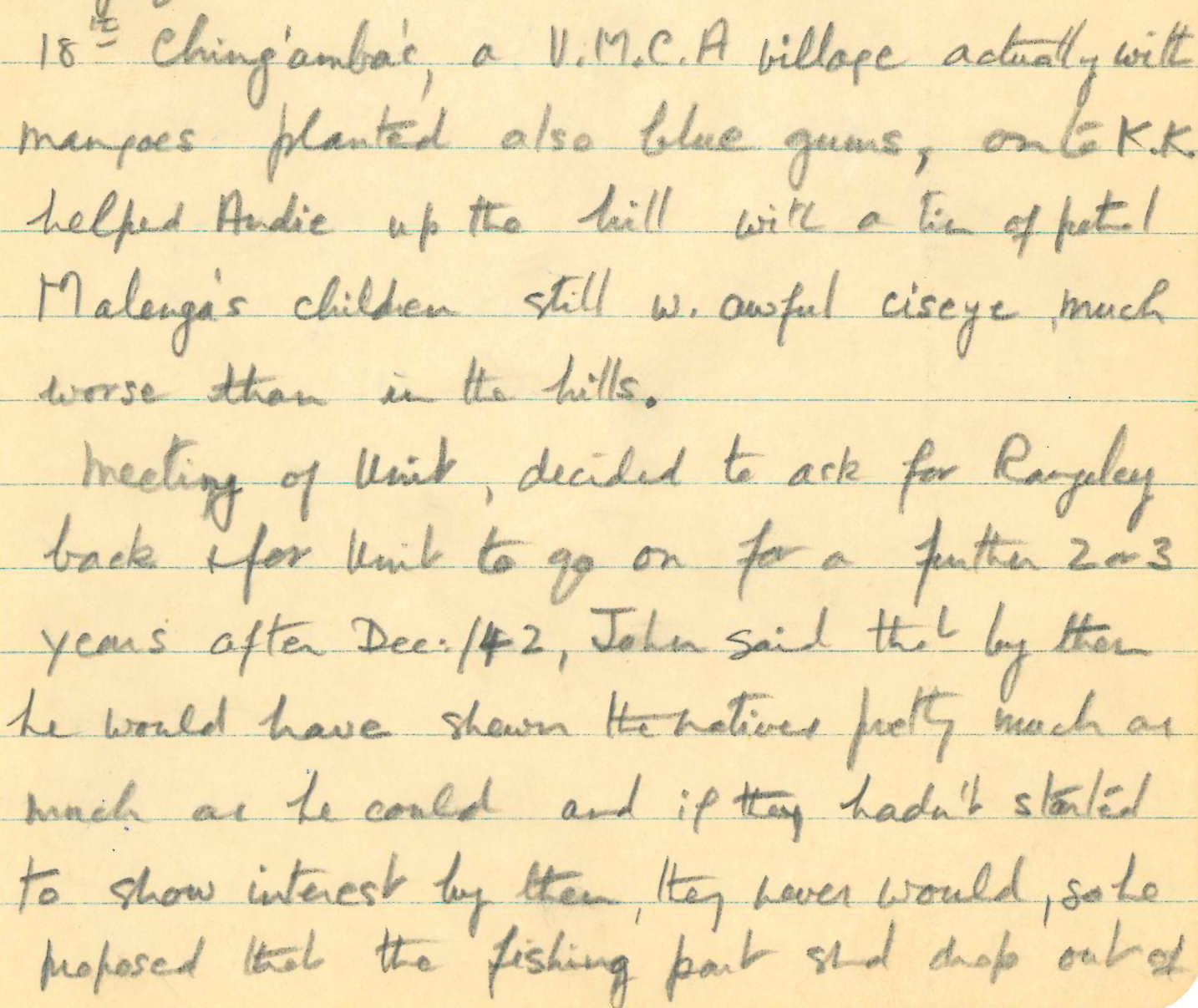
This extract documents the resistance encountered by the Nutrition Development Unit in Nyasaland. Barker acknowledges that they have struggled to engage or influence the local people in their projects. The reference in the diary to a time limit being placed on the work and the suggestion that if the ‘natives’ had not ‘started to show an interest by then, they never would’ speaks directly to this idea of local hostility to the colonial researchers.
Jessie Barker’s Diary – 27 September 1941
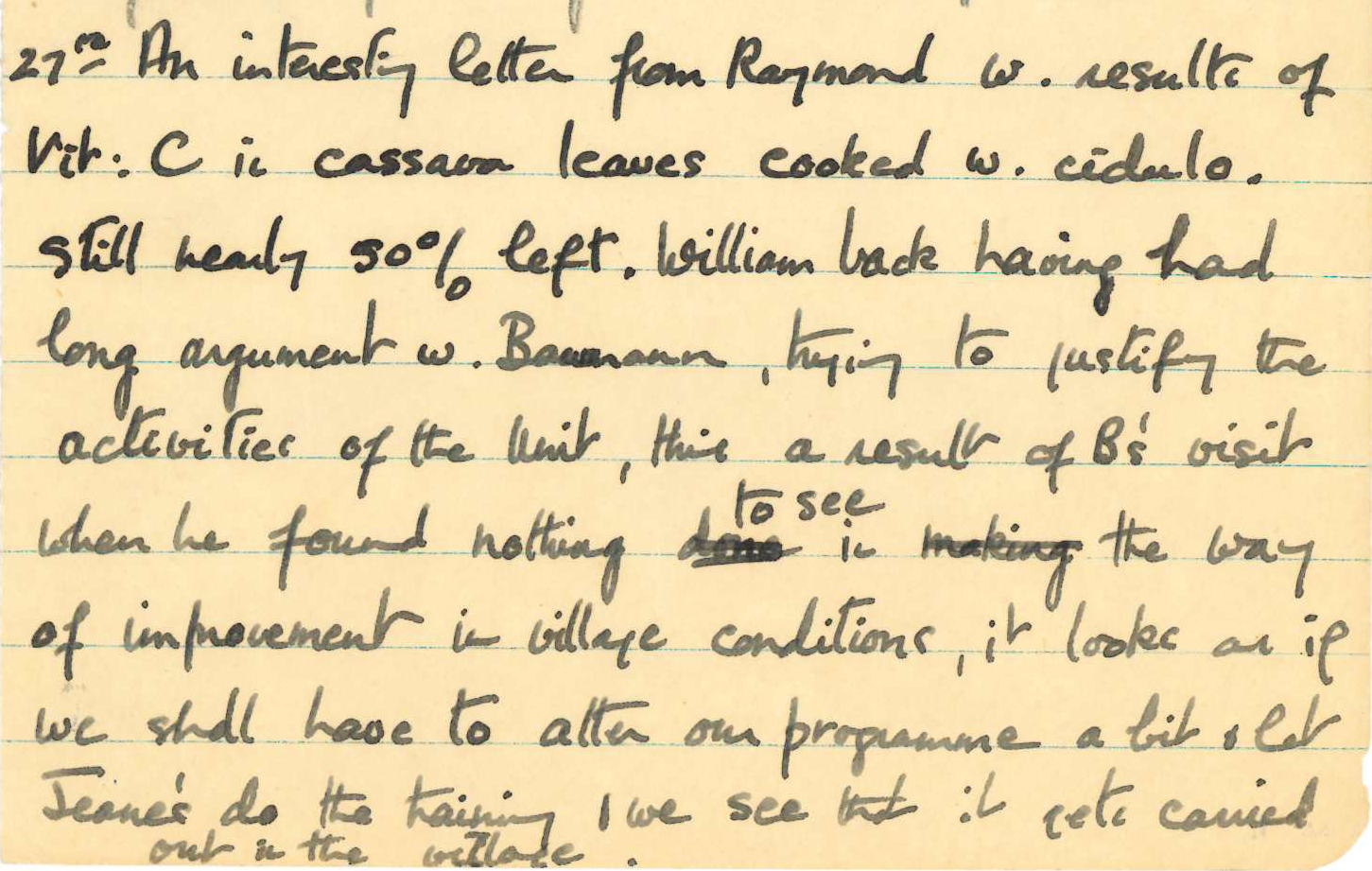
This extract seems to exemplify the relationship between colonised and coloniser in Nyasaland– characterised by resistance and intervention respectively. Barker refers to a failure in the Unit’s aim to intervene in village life and suggests that they need to ‘alter their programme’ to encourage local engagement; this ‘failure’ can be viewed, from the perspective of those in the villages, as an active choice not to participate in the Unit’s activities.
